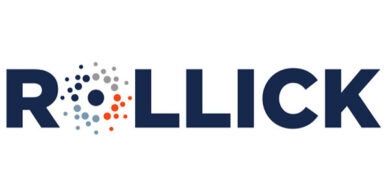Electrification: One Dealer’s Viewpoint
In West Lebanon, New Hampshire, Spencer Powers owns and operates Joe’s Equipment Service (https://joesequipment.com), a dealership he acquired from his father (and his father’s partner) this year. But don’t get the wrong idea: Powers is hardly a newbie to OPE – he has worked at the dealership in various capacities since 1994.
Primarily serving a local client base, Joe’s Equipment sells to a mix of homeowners and contractors – “early in the year, February through May, we sell mostly to contractors, then homeowners the rest of the year.” He carries a variety of lines, including Exmark, Toro, Honda and Cub Cadet lawnmowers, plus Stihl chainsaws, Echo trimmers, Shindaiwa blowers and more.
BTW, wondering about the dealership name? It’s named after Joe Zea, who started the business back in the 1940s; Joe’s father eventually bought the shop in 1991.
OPEB: Are your customers asking about battery-powered equipment?
Powers: Some are coming in and asking for battery-powered equipment. Many of these are new power-equipment users, with little or no experience with gas-powered engines. While most of my battery-powered sales are to homeowners, some commercial customers have also been interested in this type of equipment – although some of that interest is because of the limited availability of gas-powered equipment.
OPEB: What percentage of your sales are battery-powered?
Powers: It’s small, probably less than 10 percent right now. Some homeowners want battery-powered tools, while some have grown up with gas-powered equipment – it’s sometimes tough to convince them about battery’s advantages. The best bet is to let them try a couple of machines. A lot of people want to touch and feel.
OPEB: Do you find that you have to sell customers on the advantages of battery equipment? Which features are customers most interested in?
Powers: What I like about the new tools that are coming out is the run times – if you can get a battery-powered machine to run as long as its gas-powered equivalent, then you’ve got something. As I see it, the challenge is that no one wants to spend x amount of money on a million batteries. You have to be able to charge things while on the job – that’s the biggest challenge. For a homeowner, they might only need to use the equipment for, say, an hour; but for the guy that makes living with the equiment, that’s different. Of course, they also have to be price competitively, close to a gas mower price. You can’t overcharge and you have to be able to balance the line between quality and cost.
OPEB: Are there specific battery downsides from the dealer standpoint?
Powers: One of the pain points, and I’m nitpicking here, is that it’s a pain to store batteries and chargers for every single unit – you have to have replacements on hand. Also, battery products need to be standardized – you can ‘t make something for three to four years, then switch and have that tech suddenly be obsolete. Some of the new equipment is supposed to solve that problem.
OPEB: Any final thoughts on battery-powered equipment?
Powers: The industry is embracing battery technology – don’t close the door on it just because it’s new. We have battery-powered drills, cars and more, so it’s coming. If you don’t have what customers are looking for, you’re going to lose the sale. You still want people to come through your door – you have to be able to offer options. If customers know what they want, sell it.
This article first appeared in our May/June 2022 issue of OPE Business magazine.



